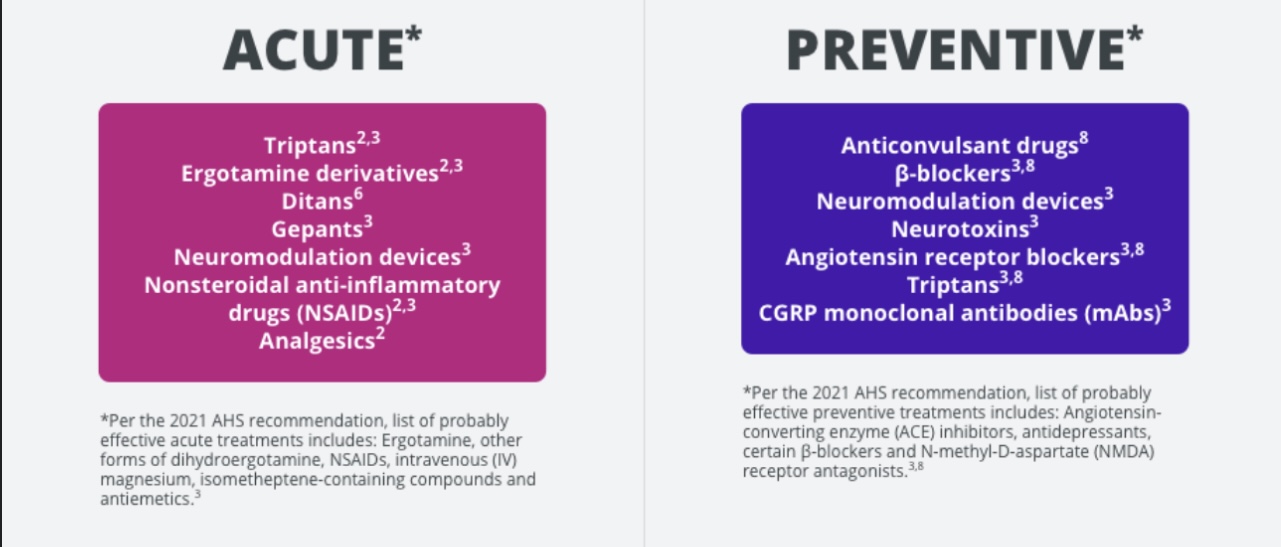Migraines are a debilitating condition that affects millions of people worldwide. Finding effective migraine medications can be a daunting task, as there are numerous options available on the market. However, not all medications are created equal, and it is important to find the right one that will provide relief without causing harmful side effects. Some common migraine medications include triptans, which work by narrowing blood vessels in the brain to reduce pain and inflammation.
Other medications, such as beta blockers and antidepressants, may also be prescribed to help prevent migraines from occurring in the first place. It is important to consult with a healthcare provider to determine the best course of treatment for your individual needs. In addition to medication, lifestyle changes such as stress management, regular exercise, and a healthy diet can also help alleviate migraine symptoms. By finding the right combination of medications and lifestyle changes, relief from migraines is possible.
Over-the-Counter Treatments: Quick Relief Options
Over-the-counter treatments offer quick relief options for a variety of common ailments and symptoms. These medications can be purchased without a prescription and are readily available at pharmacies, grocery stores, and online retailers. Over-the-counter treatments can provide relief from minor aches and pains, allergies, cold and flu symptoms, digestive issues, and skin irritations. These medications are often convenient for those seeking immediate relief without having to visit a doctor or wait for a prescription to be filled.
While over-the-counter treatments can be effective for many people, it is important to read and follow the directions on the packaging carefully to ensure safe and proper use. It is also recommended to consult with a healthcare professional before taking any new medication, especially if you have any pre-existing medical conditions or are currently taking other medications. Over-the-counter treatments are a valuable option for quick relief from common health issues, but it is essential to use them responsibly and in accordance with the recommended guidelines.

Prescription Medications: Stronger Solutions for Severe Migraines
Prescription medications are often the go-to solution for individuals suffering from severe migraines. These medications are specifically designed to target the root cause of the migraine, providing much-needed relief for those who experience debilitating pain. Some of the most common prescription medications for migraines include triptans, which work by constricting blood vessels in the brain and blocking pain pathways. Other options include ergotamines, which also work to constrict blood vessels, and anti-nausea medications to help alleviate the accompanying symptoms of migraines.
For individuals who suffer from chronic migraines, preventative medications such as beta blockers, antidepressants, and anticonvulsants may be prescribed to help reduce the frequency and severity of attacks. While these medications can be highly effective in providing relief for severe migraines, it is important for individuals to work closely with their healthcare provider to determine the best course of treatment for their specific needs. Additionally, it is crucial for individuals to follow their healthcare provider’s instructions carefully and to be aware of any potential side effects or interactions with other medications. With the right prescription medications, individuals suffering from severe migraines can find much-needed relief and improve their overall quality of life.
Preventive Medications: Reducing Frequency and Severity
Preventive medications play a crucial role in reducing the frequency and severity of certain health conditions. By taking these medications regularly, individuals can proactively manage their health and potentially avoid more serious complications down the line. For example, individuals with asthma may take daily medications to prevent asthma attacks and minimize the need for emergency interventions. Similarly, individuals with migraines may take preventive medications to reduce the frequency and severity of their headaches.
By addressing the underlying causes of these conditions, preventive medications can help individuals lead healthier and more comfortable lives. In addition to managing chronic conditions, preventive medications can also be used to reduce the risk of certain illnesses. For example, individuals at high risk for heart disease may take medications to lower their cholesterol levels and decrease their chances of experiencing a cardiovascular event. By addressing risk factors early on, individuals can potentially prevent the development of more serious health problems in the future. Overall, preventive medications are an important tool in maintaining and promoting overall health and well-being. By working with healthcare providers to identify appropriate preventive medications and adhere to prescribed treatment plans, individuals can take proactive steps to improve their health and quality of life.
Rescue Medications: Strategies for Acute Attacks
Rescue medications are essential tools for managing acute attacks in various medical conditions, such as asthma, migraines, and severe allergic reactions. These medications are designed to provide rapid relief and prevent further complications during an acute episode. Strategies for using rescue medications effectively include having a clear understanding of when and how to administer them, as well as being aware of any potential side effects or interactions with other medications.
It is important to always have rescue medications readily available and easily accessible in case of an emergency. Additionally, individuals should work closely with their healthcare providers to develop a personalized rescue medication plan that takes into account their specific medical history and needs. Proper training in the use of rescue medications is also crucial, as incorrect administration can be ineffective or even harmful. By following these strategies and staying proactive in managing acute attacks, individuals can effectively address sudden health crises and improve their overall quality of life.

Alternative Therapies: Complementary Approaches
Alternative therapies are becoming increasingly popular as people seek out complementary approaches to traditional medicine. These therapies encompass a wide range of practices, from acupuncture and chiropractic care to herbal medicine and meditation. Many individuals turn to alternative therapies to supplement their conventional treatments, believing that a holistic approach to health and wellness can provide additional benefits. While some may question the effectiveness of these therapies, there is a growing body of research supporting their use in treating various health conditions.
Additionally, many people find that alternative therapies offer a more personalized and individualized approach to their healthcare, allowing them to address not only physical symptoms but also emotional and spiritual needs. As more individuals seek out alternative therapies, there is a growing recognition of the importance of integrating these approaches into mainstream healthcare practices. By working together with traditional medical professionals, individuals can access a more comprehensive and well-rounded approach to their health and well-being. Ultimately, the rise of alternative therapies reflects a shifting mindset towards a more holistic and integrative approach to healthcare, one that recognizes the value of incorporating a variety of healing modalities to support overall wellness.
Conclusion
In conclusion, it is important to consider the consequences of our actions and the impact they have on ourselves and others. It is essential to reflect on our choices and behaviors, and how they align with our values and beliefs. By taking the time to evaluate our decisions and their potential outcomes, we can better navigate through life’s challenges and dilemmas. It is also crucial to listen to our inner voice and intuition, as they often guide us towards the right path.
In the end, it is up to us to make choices that we can be proud of and that contribute positively to our own well-being and that of those around us. Ultimately, our actions define who we are and shape the world in which we live. By being mindful and intentional in our decision-making process, we can create a more harmonious and fulfilling existence for ourselves and others. So, as we move forward in our journey, let us strive to make choices that align with our values and lead us towards a brighter and more fulfilling future.
